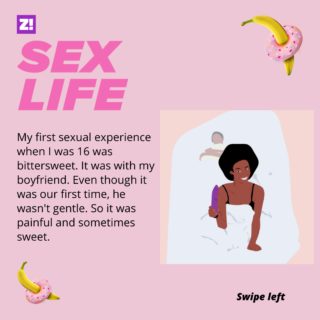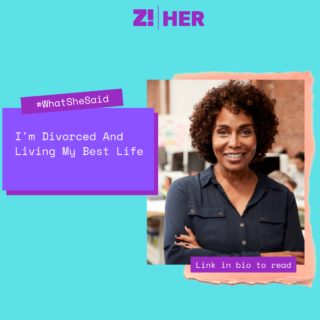The subject of this week’s What She Said is a 27-year-old Somali woman living in the US. After she was almost married off to a 30-year-old man when she was 17, she realised she couldn’t continue to live with her family and began planning her escape.
She talks about how this experience, along with leaving Islam and her family’s attitudes towards her education, led to her feminist awakening.
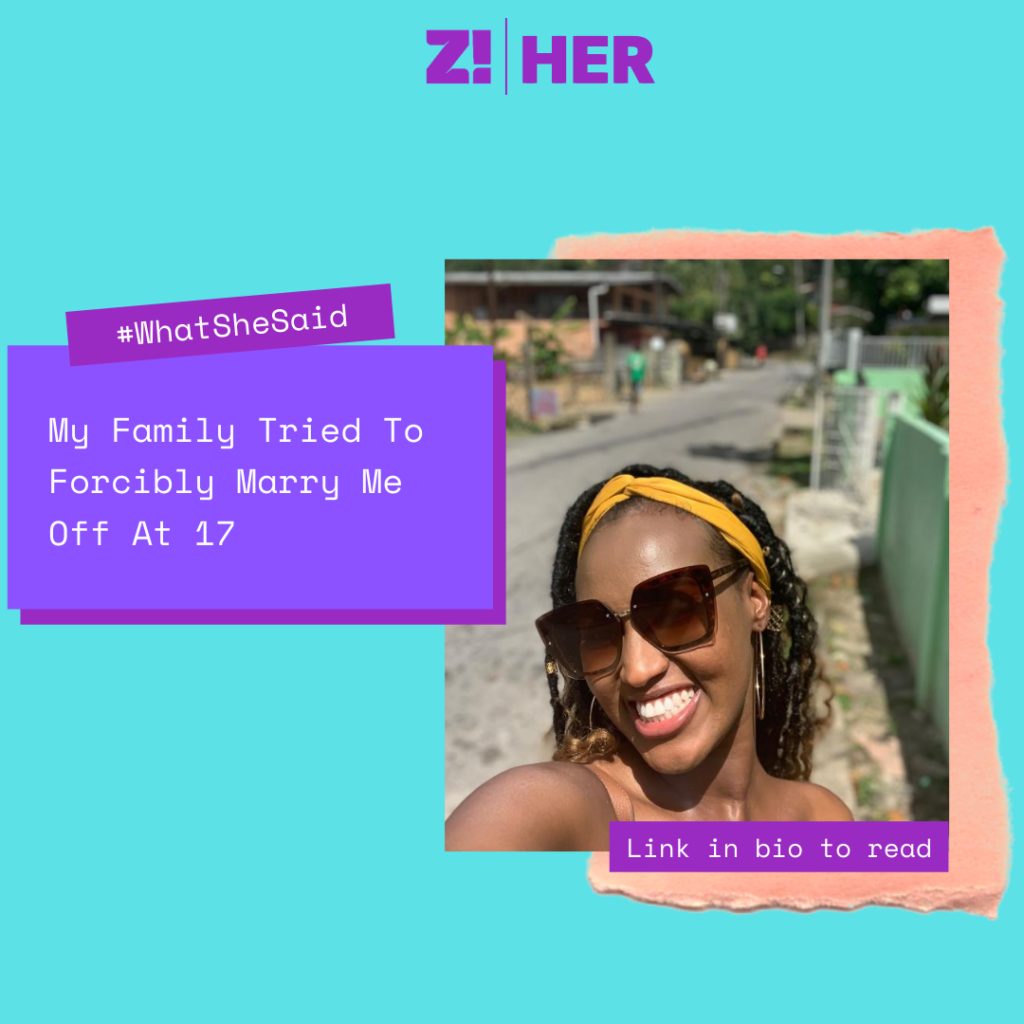
How old were you when it happened?
I was 17 years old. It started when I was caught with a guy I wasn’t supposed to be dating. In my community, we cannot date outside our ethnic group. My family didn’t approve of our relationship, so they decided the next best thing was to choose someone for me to marry. They didn’t care that we lived in the US, where women have the right to choose who they partner with.
Where are you from?
Somalia. Back home, it is very normal for Somali girls to be forcibly married off if they suspect that she’s too westernised, stubborn or likes freedom too much.
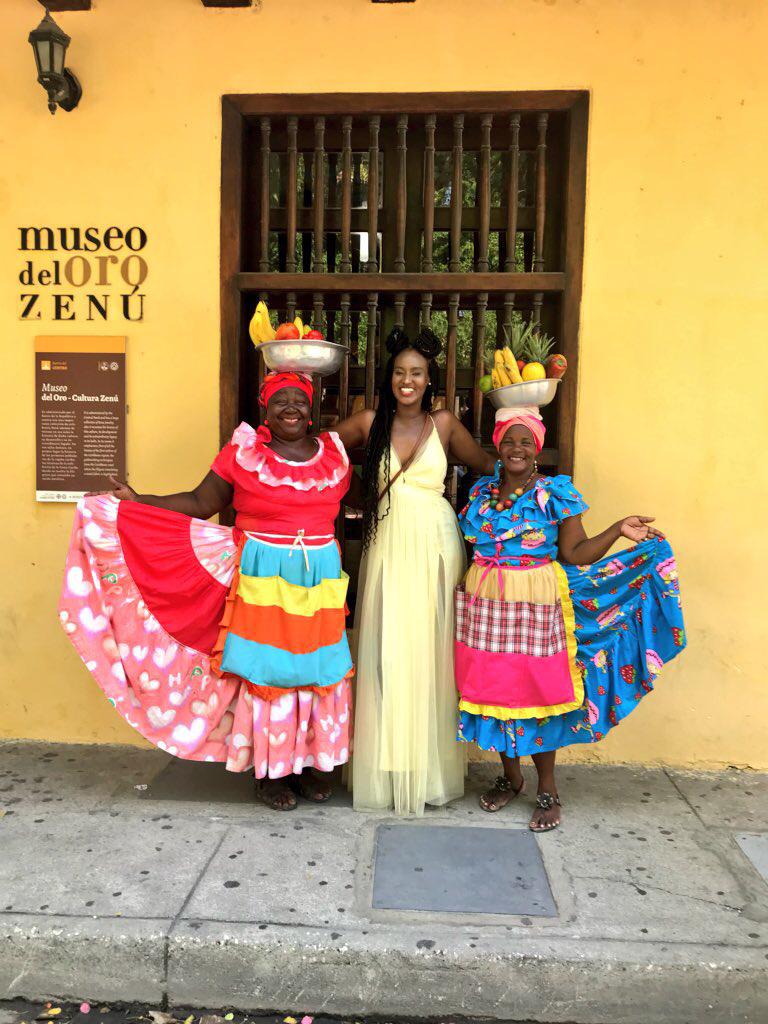
When did you move to the US?
I moved in 1996. There was a civil war, so my family came to America as refugees and then I became a citizen in 2009.
So, who was this man they wanted you to marry?
Some strange man from Seattle. He was at least 13 years older than I was. He must’ve been 30 or 31, and they wanted me to marry him.
My family is always complaining about not having money. They had told me they didn’t have the money for college. But they actually flew this man in just so we could get married.
Wow. What did you do?
I refused. I was like, “No, I don’t have a bank account or any health insurance; I don’t have any independence. I don’t have rights. How can you force me into a marriage with a man I have never seen before?” They told me I didn’t have a choice in the matter, and that was when I started planning my escape.
Before this experience, what was your relationship like with your family?
I am the eldest daughter of six children. I was told I had to cook, clean and take care of my siblings because that was my duty to my family. My obligation in life was basically to serve people. I had no say in it.
I was forced to wear a hijab when I was young; my family told me I would be homeless if I didn’t. They would force me to pray five times a day. They monitored and watched me pray. If I told them I was on my period, they would go through the trash to look for pads as proof. I didn’t believe in their religion.
Tell me about that.
I gave up on religion in high school, but I was quiet about it. I was being forced to pray and wear a hijab. If I didn’t, I would get beaten. There was a lot of violence in my life. I would wear a hijab from home and change in my car before I went out for the day, and put it back on when I got home; I was always living a double life.
Wow. That must have been hectic for a teenager. What did you do after refusing to marry him?
First, I locked myself in my room when I saw what was happening. I cried because I felt very helpless. There I was with no money, bank account or car. The car I was driving was my mum’s, so legally, it wasn’t mine and I couldn’t just drive away with it. It was a very strange place to be. Young people are being forced into marriage and do not have anything or anywhere to go. They either end up on the streets or in shelters.
My family kept asking me why I was acting that way and told me they were doing me a favour and bringing the family honour.
How did the situation with the man eventually end?
He went home, but they gave him my number, so he kept texting me. I told him to leave me alone. I couldn’t believe my family didn’t see that it was trafficking. They were so invested in his coming, just to sell me to him.
If only they put all that energy into getting me into college.
Wait. They didn’t have money for education, but they had money for marriage?
My family always said things like, “Education is for ugly girls”, “Education is for girls who can’t find husbands to take care of them.” They wondered why I was working when a man could be taking care of me (even though that man could beat me up). They didn’t care that the poorer you are, the scarier it is to be in a relationship. They didn’t care that in this country, black people need more education in order to get jobs. They never cared about education; they hated it. I grew up with my education being jeopardized my whole life; sometimes, I had to miss school to take care of my siblings because we didn’t have childcare. I had to work hard and take my education seriously to get out of that hell.
How did it feel to be so young and have such responsibilities?
When I came to the US, I knew how to change a diaper before I could even read or speak English. Education was seen as a hindrance in my family, but it is legally required to send your children to school in the US. If they hadn’t, that would have been education neglect and the government would have gotten involved. My family was mad at the system for forcing their children to go to school. School was my sanctuary away from adult responsibilities.
Did you eventually go to college?
Yes, but on a scholarship. My family didn’t pay a dime. It was when I went to college and started working three jobs that I made enough money to afford the escape. It was really hard. When I got the job, I also got health insurance and a car. The car made it easy to pack my things and drive away. I changed everything I could so they wouldn’t be able to find me or track me down. I didn’t really take much. I took all my important legal documents and clothes and disappeared.
At what age did you leave home?
I was 22 when I graduated from college and left my family. Before this, I was living with some other relatives. When I was living with these people, I was usually harassed, and they kept talking about finding me a husband. I had to be careful and take a lot of steps, so I wouldn’t end up on the streets or be imprisoned. Once I had everything I needed, I left.
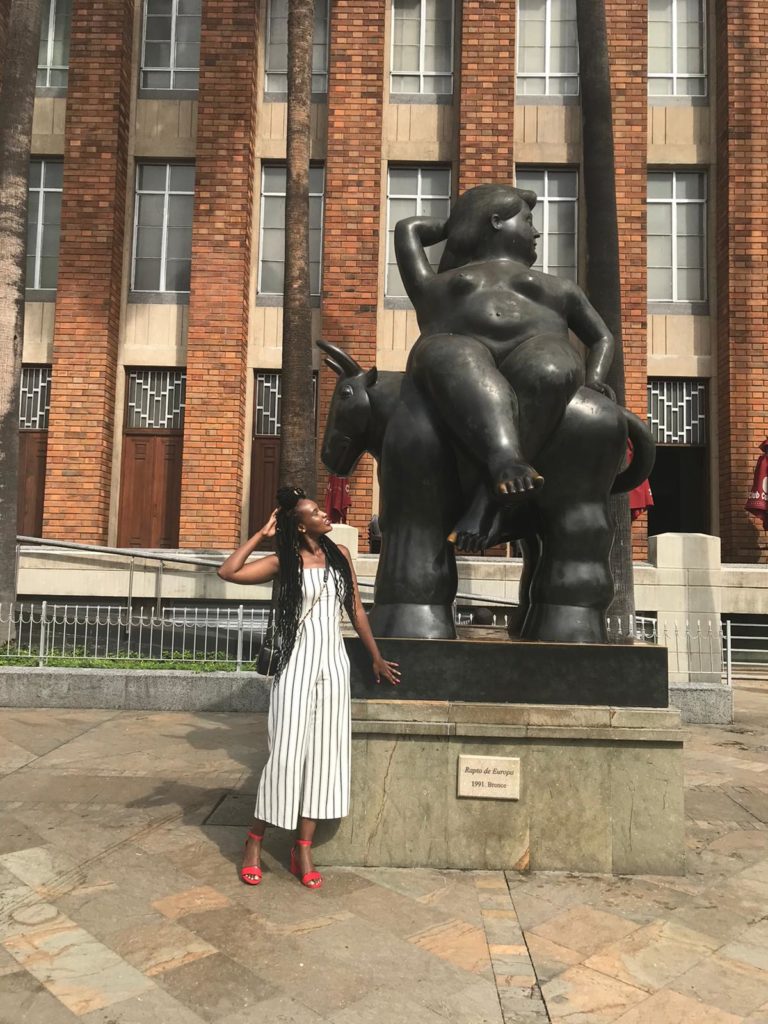
Did you have any support from any relatives at all?
Nope. Honestly, I do not want a relationship with them because I do not believe all that happened then was love. When they were trying to force me into marriage at 17, what I first felt was shock. While my friends were going on road trips, I was busy fighting for my life to keep my parents from trafficking me.
Has anyone tried to track you down since you left?
Not really. I live really far from them now. It’s been five years since I left, and I run a blog about black liberation and leaving Islam.
Someone once shared a link for my blog with them and asked, “Isn’t this your daughter?”
Wait. Why did they do that?
Because I left Islam. I never told them by myself; they could kill me. They are not people I could just sit down and talk about not being a Muslim anymore. That would make them extremely violent. It wasn’t worth it. When they found out, they sent me an email telling me they didn’t care about me not being a Muslim. But it was easy for them to say that because I now have my own place and car, and I’m not dependent on them for survival. Now, I’m living a life that I want, and not one forced upon me.
Wow. “Money stops nonsense.” If you never left Somalia, do you think it would have been more or less the same experiences?
If I was living in Somalia, I wouldn’t have been able to get away with any of these things. Even in the US, there are people who aren’t documented and could be deported; they do not have the same access I have to live a better life, not to even talk about those in Somalia. I am grateful to be in the US even though it has its own oppression towards black immigrants, but it’s safer than a Muslim country for me. Unlike in Somalia, I don’t need the permission of my brother/husband to travel here in America.
There are going girls who are deceived into returning home to Somalia by their family for a “visit” just to be forcefully married off and their passports taken away. We don’t talk about it a lot in the community, but it happens.
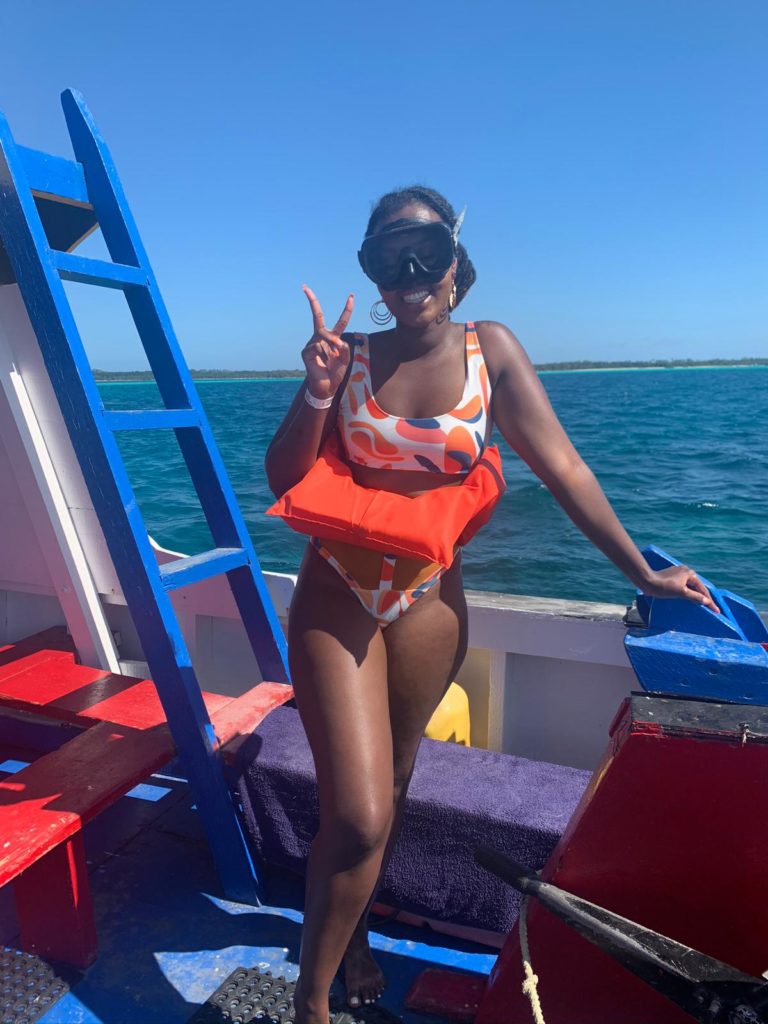
Wow. That’s crazy. How has the quality of your life improved since you left home?
To be honest, drastically. I’m in control of my life now. Then, I couldn’t go out without telling them, and if I was running late, say like past 10 p.m., they would leave me voice messages cussing me out. Now, I can go to a different country on my own for two weeks and not tell anyone. Life feels more colourful and exciting. When I was living in that abusive environment, the world seemed like a horrible place and I felt like everyone was out to hurt me. Life seems brighter now that I’ve left, and there are more possibilities. Though there is a lot of suffering in the world, there is also a lot of liberation as well and people who are fighting for women’s rights. I’ve met good people that were kind to me.
Of course, living as a Black woman immigrant in the US isn’t easy. Black women are disproportionately more likely to experience violence because they are more likely to be poor, have less access to food, healthcare and transport systems; that is how the system is designed. Due to these systemic institutional mechanisms, there is more violence because these women and girls are more vulnerable. It is like triple oppression.
So, leaving wasn’t easy for me, but it was worth it, to be able to live life on one’s terms instead of being oppressed, subjugated or violated. It is possible to lift yourself up.
If you were to advise a young woman who is in the same situation you were at 17, what would you say to her?
I would say it’s not a bad thing to involve the police, because when we start calling it sex trafficking and domestic violence, people take it more seriously. There are laws in place in the US to protect survivors of human and sex trafficking. I would tell you to do your research and see what support is available for you out there. If you are a minor, it would be harder to leave, so you have to be a lot more careful. Reach out to organisations that work on human and sex trafficking, and LGBTQ youth. Ask for help.
For more stories like this, check out our #WhatSheSaid stack.

